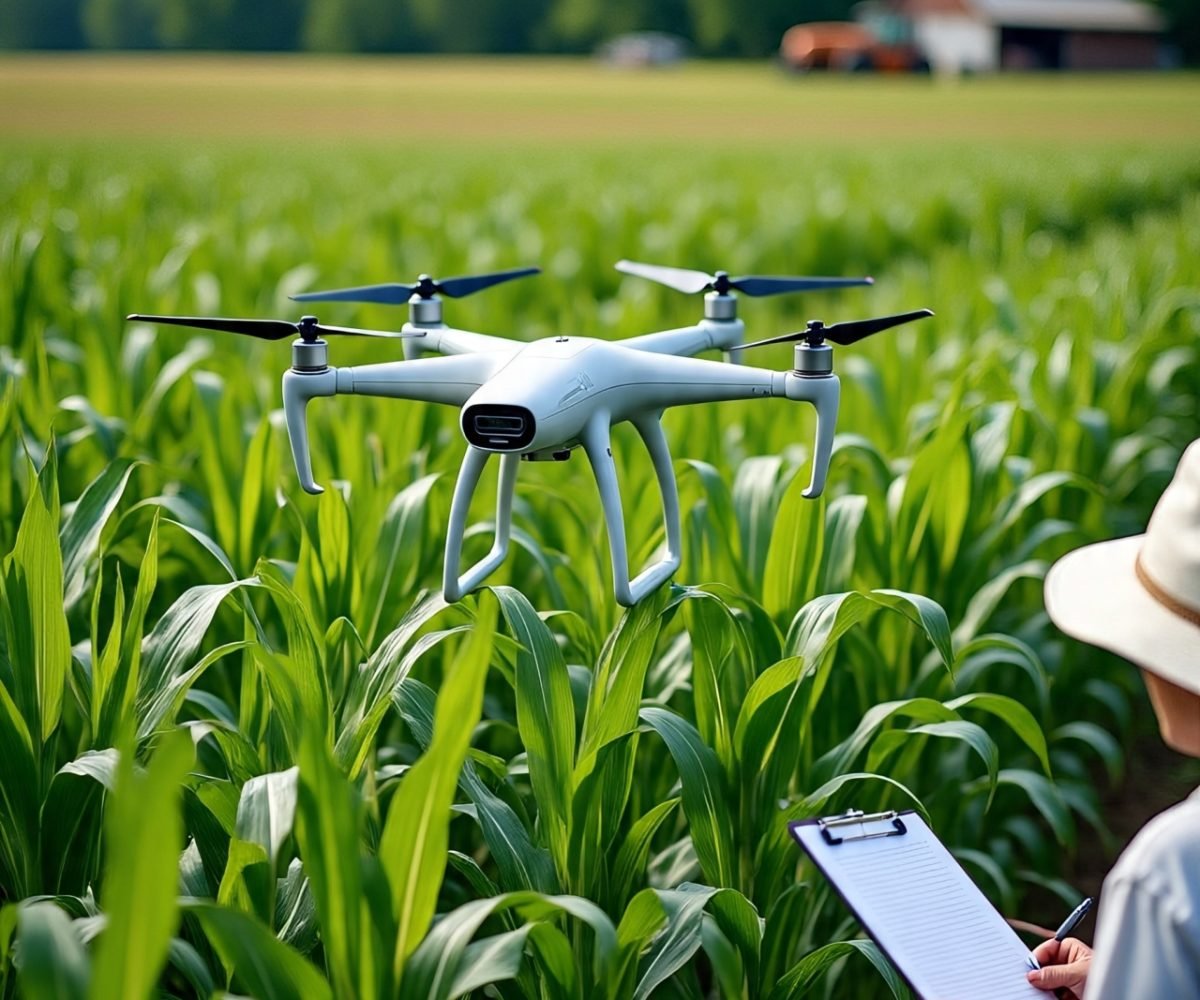Drones and AI Revolutionize Corn Crop Health Monitoring, University of Missouri Study Finds

Columbia, Missouri — A new study from the University of Missouri reveals that combining drones with artificial intelligence (AI) offers farmers a faster, more accurate way to assess corn crop health, potentially transforming modern agriculture.
From Handheld Tools to High-Tech Solutions
For decades, farmers have relied on handheld devices to measure crop health — a time-consuming and impractical method for large farms. In this breakthrough study, researchers flew drones equipped with multispectral cameras over cornfields in mid-Missouri.
These cameras captured images in multiple light wavelengths, including near-infrared and red-edge, which are invisible to the human eye but closely linked to plant vitality.
Machine Learning Boosts Accuracy
After capturing aerial images, researchers combined them with soil data and processed the information using machine learning. This AI-powered analysis allowed them to accurately predict chlorophyll levels across entire fields.
Chlorophyll measurement is critical for determining the best timing and amount of nitrogen fertilizer application, which directly affects corn growth, yield, and environmental sustainability.
Precision Agriculture for Higher Yields and Lower Costs
Project lead Fengkai Tian, a doctoral student, and Jianfeng Zhou, associate professor and co-director of Mizzou’s Digital Agriculture Research and Extension Center, emphasized the importance of applying nitrogen at the right time, place, and quantity.
Benefits include:
- Higher crop yields through optimal nutrient delivery.
- Reduced chemical waste and fertilizer costs.
- Lower environmental impact from over-fertilization.
Given corn’s high nitrogen requirements, this precision approach ensures no resources are wasted while maximizing plant growth.
Potential Beyond Corn: Soybeans, Wheat, and More
While the research focused on nitrogen-intensive corn, the same drone-and-AI approach could be adapted for soybeans, wheat, and other crops that require less nitrogen but still benefit from precision management.
A New Role for Agri-Tech Service Providers
In the future, agricultural technology service companies could handle drone flights and data processing, allowing farmers to benefit from these innovations without needing technical expertise.
Collaboration and Publication
The study, “Estimating corn leaf chlorophyll content using airborne multispectral imagery and machine learning”, was published in Smart Agricultural Technology. It was conducted in partnership with the U.S. Department of Agriculture’s Agricultural Research Service (USDA-ARS).
The interdisciplinary team included experts in statistics, AI, mechanical engineering, plant sciences, and computer science, highlighting Mizzou’s leadership in precision agriculture innovation.
Key Takeaways
- University of Missouri develops drone + AI method for corn health monitoring.
- Machine learning predicts chlorophyll levels for precise nitrogen fertilizer application.
- Technology promises higher yields, cost savings, and environmental benefits.
- Potential applications for soybeans, wheat, and other crops.
- Collaboration with USDA-ARS underscores national importance of the research.
For any quarries feels free to contact us
